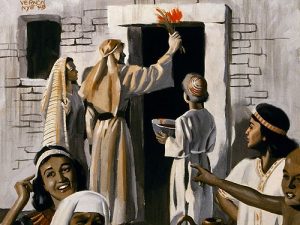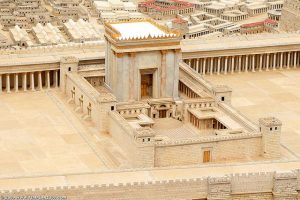This week the Oisvorfer has the pleasure of wishing a personal and heartfelt mazel tov to both sides of the upcoming Weitz-Fenster wedding which will take place this coming Sunday at the Hilton Meadowlands in New Jersey. If youhaven’t received your invitation by now, you are not invited. Mazel tov to Rikki Weitz and to Yoni Fenster on their upcoming wedding. Mazel tov to our dear friends Chana and Jay Fenster and to Dasi and Moti Weitz, proud parents of Yoni and Rikki, and to both extended families. The Oisvorfer has a long history with both families and looks forward to sharing in this great simcha.
 Mazel tov to Janet and Bernie Nagelberg, friends of many decades -approximately 50 years for Bernie and just about 40 with Janet- upon the arrival of a grandson born to their children Moriah and Ahron Nagelberg last week. The Oisvorfer had every intention of attending the bis which took place this past Monday, ober he, after learning the heylige Toirah in advance in preparation of this week’s review, overslept.
Mazel tov to Janet and Bernie Nagelberg, friends of many decades -approximately 50 years for Bernie and just about 40 with Janet- upon the arrival of a grandson born to their children Moriah and Ahron Nagelberg last week. The Oisvorfer had every intention of attending the bis which took place this past Monday, ober he, after learning the heylige Toirah in advance in preparation of this week’s review, overslept.
And in late breaking news, we wish a big mazel tov to our friends Lynn and Joel Mael upon the engagement earlier this week of their beautiful daughter Ayelet, to Ari Rosenberg, he of Edison, New Jersey. Mazel tov to uncles, aunts, cousins on both sides and to both extended families. Details to follow.
This week, we also shout out Dr. Harvey Benovitz, father of Debbie and shver to Dr. Mendy Tepler whom the Oisvorfer was introduced to this past shabbis in shul. As it turns out, Dr. Benovitz who resides in Yirusholayim with his eishes chayil, is a long time Oisvorf reader and follower. So nice to meet you. Chazak!
39 Missing Pesach Celebrations:
Says Wikipedia: substitution is the act of replacing a player from the court to another player sitting on the bench. When it comes to the use of subs, every sport makes use of them. Schools , yeshiva’s, colleges, and avada all sports teams. Though the idea of the substitute is seen by many as a relatively recent invention, at least for football (as played in Europe), the utilization of subs actually dates back much further than most people realize. As it turns out, the term was originally meant in a more literal fashion, with players ‘substituting in’ for those that didn’t turn up in time to play in a match. And that’s how it’s still used by yeshivas and colleges. Based on exhaustive research conducted (the truth: a few clicks on Google), it appears that the first recorded examples of using subs dates back to the 1850s, when Eton College used ‘emergency’ players to replace some that failed to turn up for the game. The use of the term ‘substitute’ first came about in 1863. Virtually every sport makes use of subs; they are an integral component of a winning strategy. Though subs are typically bench warmers, there are times when subs outshine the starters. At times, they replace them. And this topic of subs is related to our parsha how?
 Long before sports teams and others began using substitutions, calling in subs off the bench to spell the starters, sometimes to give them a breather and at times, also because of either poor play, or in an attempt to have the stronger player appear on either defense or offense as might the case call for, subs actually date back some 3331 years and are discussed in this week’s parsha of B’haloischo. Mamish? Indeed, they are, and this week we read of a substitution the RBSO made, this first in recorded history, and one of a permanent nature.Who were the subs and whom did they replace, and why? Let’s find out by chazering a few pisukim from our parsha.
Long before sports teams and others began using substitutions, calling in subs off the bench to spell the starters, sometimes to give them a breather and at times, also because of either poor play, or in an attempt to have the stronger player appear on either defense or offense as might the case call for, subs actually date back some 3331 years and are discussed in this week’s parsha of B’haloischo. Mamish? Indeed, they are, and this week we read of a substitution the RBSO made, this first in recorded history, and one of a permanent nature.Who were the subs and whom did they replace, and why? Let’s find out by chazering a few pisukim from our parsha.
Says the heylige Toirah (Bamidbar 8:16-18) azoy:
| 16. For they are wholly given over to Me from among the children of Israel; instead of those that open the womb all the firstborn of Israel I have taken them for Myself. | טזכִּי֩ נְתֻנִ֨ים נְתֻנִ֥ים הֵ֨מָּה֙ לִ֔י מִתּ֖וֹךְ בְּנֵ֣י יִשְׂרָאֵ֑ל תַּ֩חַת֩ פִּטְרַ֨ת כָּל־רֶ֜חֶם בְּכ֥וֹר כֹּל֙ מִבְּנֵ֣י יִשְׂרָאֵ֔ל לָקַ֥חְתִּי אֹתָ֖ם לִֽי: | |
| 17. For all the firstborn among the children of Israel are Mine whether man or beast since the day I smote all the firstborn in the land of Egypt; I have sanctified them for Myself. | יזכִּ֣י לִ֤י כָל־בְּכוֹר֙ בִּבְנֵ֣י יִשְׂרָאֵ֔ל בָּֽאָדָ֖ם וּבַבְּהֵמָ֑ה בְּי֗וֹם הַכֹּתִ֤י כָל־בְּכוֹר֙ בְּאֶ֣רֶץ מִצְרַ֔יִם הִקְדַּ֥שְׁתִּי אֹתָ֖ם לִֽי: | |
| 18. And I have taken the Levites instead of all the firstborn of the children of Israel. | יחוָֽאֶקַּ֖ח אֶת־הַֽלְוִיִּ֑ם תַּ֥חַת כָּל־בְּכ֖וֹר בִּבְנֵ֥י יִשְׂרָאֵֽל: |
Nu, as all know, originally, the bichorim (firstborn sons) were to have been the priests of the Jewish nation. They were to serve in the Mishkan (Tabernacle) in the desert, and in the Beis Hamikdash (Temple) to be built once they entered the PromisedLand. They were designated to act as the Yiddin’s spiritual leaders. When were they selected? The heylige Toirah us just when and how they were selected. It happened following the RBSO’s display of power as He visited upon all the firstborn mitzrim the plague of Makas Bichoiris (plague of the first born). During that same night (midnight), the RBSO spared the Jewish firstborn. And with that act, He “acquired” the firstborn and designated them for this special role. Seemingly they started off ok. Ober that designation did not last very long. What happened next?
 The Yiddin left Mitzrayim and a few weeks later found themselves at Har C’nai (Mt. Sinai) where they were gifted the heylige Toirah. And then…forty days later, the Yiddin sinned by making and worshipping the eygel (the golden calf). We have previously covered that fiasco, a sin that –according to some- has never been fully forgiven. Yikes! Ober, what has all that to do with the bichoirim? So happens, the heylige Toirah tells us that only those from Sheyvet Levi (the Levites, those born to the tribe of the Levi) did not participate in the eygel caper. The RBSO was upset and disappointed with all participants which seemingly included bichoirim. Shoin! He decided to make a switch. He seemingly fired the bichoirim and brought the Livi’im in off the bench to replace the bichoirim. And while the heylige Toirah does not specifically tell us that the bichoirim had unclean hands in the eygel caper, our sages of yore somehow insightfully linked the matter of their firing to the events of the eygel. They were -according to our sages- presumed guilty for their role in the villainy. The first born lost their special status, such privilege forever transferred to the Levites. Mamish forever?
The Yiddin left Mitzrayim and a few weeks later found themselves at Har C’nai (Mt. Sinai) where they were gifted the heylige Toirah. And then…forty days later, the Yiddin sinned by making and worshipping the eygel (the golden calf). We have previously covered that fiasco, a sin that –according to some- has never been fully forgiven. Yikes! Ober, what has all that to do with the bichoirim? So happens, the heylige Toirah tells us that only those from Sheyvet Levi (the Levites, those born to the tribe of the Levi) did not participate in the eygel caper. The RBSO was upset and disappointed with all participants which seemingly included bichoirim. Shoin! He decided to make a switch. He seemingly fired the bichoirim and brought the Livi’im in off the bench to replace the bichoirim. And while the heylige Toirah does not specifically tell us that the bichoirim had unclean hands in the eygel caper, our sages of yore somehow insightfully linked the matter of their firing to the events of the eygel. They were -according to our sages- presumed guilty for their role in the villainy. The first born lost their special status, such privilege forever transferred to the Levites. Mamish forever?
Was this substitution taka permanent? Can the bichoirim ever make a comeback? Will they be able to serve in the third temple whenever it’s built – avada speedily in our time? Excellent kashas they are. Though some things may change when the Moshiach arrives could that be one of them? They say the pig will become kosher and that we will follow the rulings of the more stringent Beis Shami instead of Beis Hillel, among other changes. Of course, we all look forward to the elimination of the yom tov shayne shel golius (the second day of Yom Tov celebration) a policy instituted by mistama well intentioned rabbis as result of then relevant issues -long outdated- concerning sifey kodiyoimo.
Says the Ohr Chaim (Bamidbar 3:45), azoy: the bichoirim will serve in the Third Temple. In other words: the sin of golden calf will finally be forgiven and they will get their jobs back! At times, the RBSO does hold a grudge. And says R’ Yoinoson Eybishitzin his sefer (Ahavas Yoinoson) on the haftorah of parshas Emor, azoy: in the future, there will be atonement for the sin of the golden calf, and thus the firstborn will return to temple service. Does everyone agree? Of course not: some question the Ohr Hachaim’s sources, others however remain hopeful. They are hopeful because thereis one opinion from the Arizal, he the great and mysterious mystic – also known form the coldest mikveh on earth found over in Tzfas, Israel. And when it comes to kabolo and all its mystery and intrigue, we avada don’t argue that taka it might happen.The bottom line: the Oisvorfer has no definitive source telling him that the bichoirim are coming back as starters. Ver veyst and let’s go veyter to the next subject.
 The calendar tells us it’s mid June. Pesach is but a faint memory, but is it? Seemingly not as this week’s parsha of B’haloischo, action packed mamish with multiple storylines including of course several controversies, the chapter which tells us how the Yiddin complained about their diets, Moishe and his black wife, and much more, also mentions Pesach and its trimmings. In fact, the parsha gives us very specific instructions about the korban Pesach (paschal offering) when it’s to be eaten, and more. And the questions on the Oisvorfer’s mind this week include these:
The calendar tells us it’s mid June. Pesach is but a faint memory, but is it? Seemingly not as this week’s parsha of B’haloischo, action packed mamish with multiple storylines including of course several controversies, the chapter which tells us how the Yiddin complained about their diets, Moishe and his black wife, and much more, also mentions Pesach and its trimmings. In fact, the parsha gives us very specific instructions about the korban Pesach (paschal offering) when it’s to be eaten, and more. And the questions on the Oisvorfer’s mind this week include these:
What the hec is Pesach doing in our parsha? Wasn’t it thoroughly covered back in Shemois? It was! Did the Yiddin, in addition to their other foibles while sojourning the midbar, also forget to observe Pesach? Say it’s not so please. Was there a concept of Pesach in the midbar? Let’s find out. As stated above, B’haloischo is so rich in content and so full of rich history, that’s it was mamish challenging for the Oisvorfer to settle on a topic, ober this being his 9th time around the parsha, it was decided to zero in on Pesach observance and see what happened to the Yiddin during their midbar stay. Let’s begin by chazering a few pisukim just as the parsha opens.
Says the heylige Toirah (Bamidbar 9:1), azoy:
| 1. The Lord spoke to Moishe in the Sinai Desert, in the second year of their exodus from the land of Egypt, in the first month, saying: | אוַיְדַבֵּ֣ר יְהֹוָ֣ה אֶל־משֶׁ֣ה בְמִדְבַּר־סִ֠ינַ֠י בַּשָּׁנָ֨ה הַשֵּׁנִ֜ית לְצֵאתָ֨ם מֵאֶ֧רֶץ מִצְרַ֛יִם בַּחֹ֥דֶשׁ הָֽרִאשׁ֖וֹן |
This posik introduces the account of the korban Pesach (Pesach offering) in the desert, and tells us that this event occurred “in the second year of their exodus from the land of Egypt, in the first month.”And the first questions is: why was this passage -found in posik 1 above- which specifically included the exact date it was spoken, (on the first month), recorded in the heylige Toirah after the first posik in Parshas Bamidbar (Bamidbar 1:1) which was taught to the Yiddin “on the first day of the second month?” You hear this question?
Seemingly the events are out or order. The words of Parshas Bamidbar are spoken in month two, ober the words in our parsha (two parshas later) were spoken in month one? What’s pshat? Did the RBSO forget a few details? Chas v’sholom (heaven forbid)!Nu, to answer this question of seemingly out of order passages and messages, our rabbis declared azoy: “From this you learn that the Toirah does not follow a sequence of chronological order.”We learned this concept early and it was reiterated over and again as the years went by. Avada all who attended yeshiva-even those who but roamed the hallway, or got kicked out (or temporarily expelled as discussed in last week’s parsha) heard the rebbe in yeshiva parlance yell out איןמוקדםומאוחרבתורה . In English: ein-mukdom-u’muchar-baToirah.” Translated: there is no chronological or sequence order to the events we learn in the Toirah. This well-known phrase is literally translated azoy: “there is no earlier or later in the heylige Toirah (Pentateuch),”
 And who so declared? Our sages, who else!? Seemingly its first found in the Michilta referring to the order of pisukim in the famous single Oz Yoshir (Song at the Sea), as well as in the Sifre (Bamidbar 64), which notes that the posik found in our parsha (9:1) carries the date “the first month of the second year” while the first posik of sefer Bamidbar (1:1) records events that occurred “in the second month” of that year. What to do about this seemingly out of order of events? It does then seemingly appear that the Toirah’s narrative, does frequently depart from the chronological order of events it is describing. Of course, that’s not always emes either and our sages developed guidelines for us to chap when things are to be read in order, and when we chalk up inconsistencies to this givaldige concept. It also appears that this concept of ‘no chronological order’ – at least at times- may indeed harken back to the first sentence of the parsha which takes place a month (and two parshas before the events we read about back in parsha Bamidbar.
And who so declared? Our sages, who else!? Seemingly its first found in the Michilta referring to the order of pisukim in the famous single Oz Yoshir (Song at the Sea), as well as in the Sifre (Bamidbar 64), which notes that the posik found in our parsha (9:1) carries the date “the first month of the second year” while the first posik of sefer Bamidbar (1:1) records events that occurred “in the second month” of that year. What to do about this seemingly out of order of events? It does then seemingly appear that the Toirah’s narrative, does frequently depart from the chronological order of events it is describing. Of course, that’s not always emes either and our sages developed guidelines for us to chap when things are to be read in order, and when we chalk up inconsistencies to this givaldige concept. It also appears that this concept of ‘no chronological order’ – at least at times- may indeed harken back to the first sentence of the parsha which takes place a month (and two parshas before the events we read about back in parsha Bamidbar.
Ober, what’s taka pshat in eyn-mukdam-umuchar-baToirah? When are things considered chronological and when not? The short answer: whenever the rabbis so declared. Did they declare this generality as a catchall phrase to shut us all up? If indeed there is no chronology, what kinds of order and arrangement is to be found in the heylige Toirah? As well we never answered the question posed above: did the Yiddin observe Pesach in the Midbar?

And does everyone agree? Is it emes that when it comes to chronology, anything goes? And do they agree on when we may declare that order does not count? Nu, as you can imagine, many an exegete including Rashi, Ibn Ezra, and RambaN sharply debated the proper application of this principle and the textual conditions which warrant its utilization. As well they debated what happened to Pesach in the midbar.
Said Rebbe Elazar: The parshas of the Toirah were not arranged in the originally planned sequence, lest a keen student discover the way to revive the dead and perform miracles. The almighty therefore concealed their correct order. Now that they are arranged in a different pattern, it is easier to study the Toirah with pure motives (and not in order to perform miracles), and thereby gain Olam Haba (Paradise).What that means, veer veyst?
Says Rashi: The passage at the beginning of this book was not said until Iyar [the second month]. Why did [the Book of Bamidbar] not open with this [passage]? Because it is a disgrace to Israel that throughout the forty years the children of Israel were in the desert, they only brought this one Pesach sacrifice. What? The Yiddin only brought the korban Pesach once -in the first year- and not again for another 39 years? Is that possible? How did all the Pesach vendors make a living?
Ober says Toisfos (Kidushin 37B), azoy: not to worry because the Yiddin were not obligated to bring the korban Pesach while in the midbar. What? Says Toisfis: the korban Pesach is a mitzvah which only applied after entering the Promised Land. And his proof? Says the heylige Toirah (Shemois 12:25): “You will [only] have to keep this ritual service…when you enter the Land that G‑d is going to give you.” And so taka says Rashi on that posik. It that’s taka the case, why did they in fact bring the korban Pesach as described in our parsha in year one? The fact that they did so here was only because the RBSO made an exception to the above rule and instructed them to bring the Pesach sacrifice that year. Oib azoy (if that’s so) why would Rashi tell us that is was a “disgrace” for the Yiddin not to bring the offering? No obligation, no disgrace! Says Toisfis so gishmak, azoy: the disgrace was that they were unable to offer the Pesach sacrifice until forty years later, due to the sin of the spies which caused them to be delayed in the desert rather than entering the Land of Israel immediately. The spies? We will be reading about them next week, stay tuned.
Ober says the Bartenura: The Yiddin taka did not bring the korban Pesach for 39 years, OMG! Why not? Because they were uncircumcised! Seemingly, none of the Yiddin there (except for Moishe’s wife Tzipoira whose skill as a female moiel we will be reading about in the coming weeks) were qualified to perform the bris. Alternatively, the Yiddin had no interest in undergoing circumcision without the ability of a catered affair in a big shul or facility, and the midbar did not offer those. Ober on a serious note, says the Bartenura: that was taka the reason they did not bring the korban. The heylige Toirah (back in Shemois 12:48) specifically instructed that an uncircumcised person may not bring the Pesach offering. Shoin: ober why taka were they not circumcised? How could they be Yiddin without having undergone a bris? Seemingly they were not uncircumcised and so tells us the heylige Gemora(Yevamos 72a). Why not? Due seemingly to difficult climatic conditions in the midbar which prevailed as a punishment for their sins. Thus, the Yiddin were unable to circumcise their children, due to the risk to life involved. Ober……according to Bartenura’s logic, it is difficult to chap that just one year after leaving Mitzrayim, there were Yiddin without a bris mila? Weren’t they all circumcised before Matan Toirah (Revelation)? Could it be that so many new males were born – enough uncircumcised males to prevent the korban Pesach sacrifice from being offered?Moreover, even if the Yiddin were that prolific and did have so many newborn baby boys, and even if they taka were not circumcised, what has that to do with their fathers who were all –we assume- circumcised? And the answers? Ver veyst?As an aside, there are questions to be asked on Rashi’s view as well, ober those for another day.
 Let’s chazir (review): As to chronology in the heylige Toirah, it’s efsher azoy: the principle of אין מוק דםומאו חר suggests that while chronology is the most frequent criterion for the Toirah’s organization, we must search for other non-chronological criteria that give meaning to the order or juxtaposition of texts in the Torah. Ober, what does all this chronology talk have to do with the fact that Pesach is again mentioned in our parsha?
Let’s chazir (review): As to chronology in the heylige Toirah, it’s efsher azoy: the principle of אין מוק דםומאו חר suggests that while chronology is the most frequent criterion for the Toirah’s organization, we must search for other non-chronological criteria that give meaning to the order or juxtaposition of texts in the Torah. Ober, what does all this chronology talk have to do with the fact that Pesach is again mentioned in our parsha?
When did the Yiddin begin observing Pesach? Did they celebrate it during the forty years of wandering in the midbar? The bottom line: They celebrated Pesach on the first anniversary of their freedom from Mitzrayim (Egypt). In reality, they celebrated Pesach even during the actual Exodus, as they were commanded by the RBSO to eat the Passover lamb on the night prior to the Exodus. Ober during the forty years they traveled through the desert, although the holiday was presumably observed in some fashion, the only time they brought the korban Pesach (Paschal Offering), was on the first anniversary doe sour parsha teach us. The next time they brought the korban Pesach was 39 years later, when they entered the Land. Why not? Seemingly the RBSO did not instruct them to. Neither did Moishe!
Why then, according to Rashi was it an embarrassment What was the big deal? Said the Lubavitcher Rebbe so gishmak, azoy: Sometimes a person needs to take the initiative. He needs to exhibit his interest in the matter and act upon it without waiting to be asked. Many times, a parent waits to see their child show interest and independent action. That brings the parent the greatest pride and joy.This should have been the Yiddin’s approach while in the desert. Why didn’t they? Let’s give them a break: they were just out of slavery, not yet ready for prime time and made mistakes. We all make them; let’s not be too hard on them. We don’t want others judging us either.
A gittin Shabbis-
The Heylige Oisvorfer Ruv
Yitz Grossman

